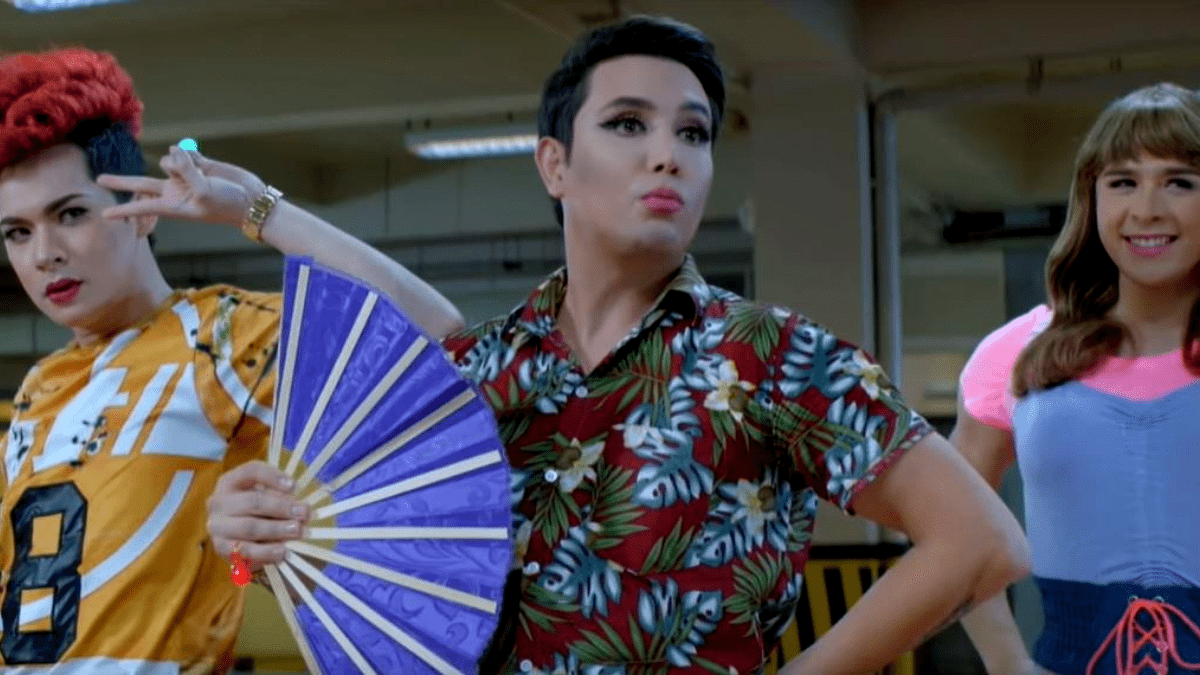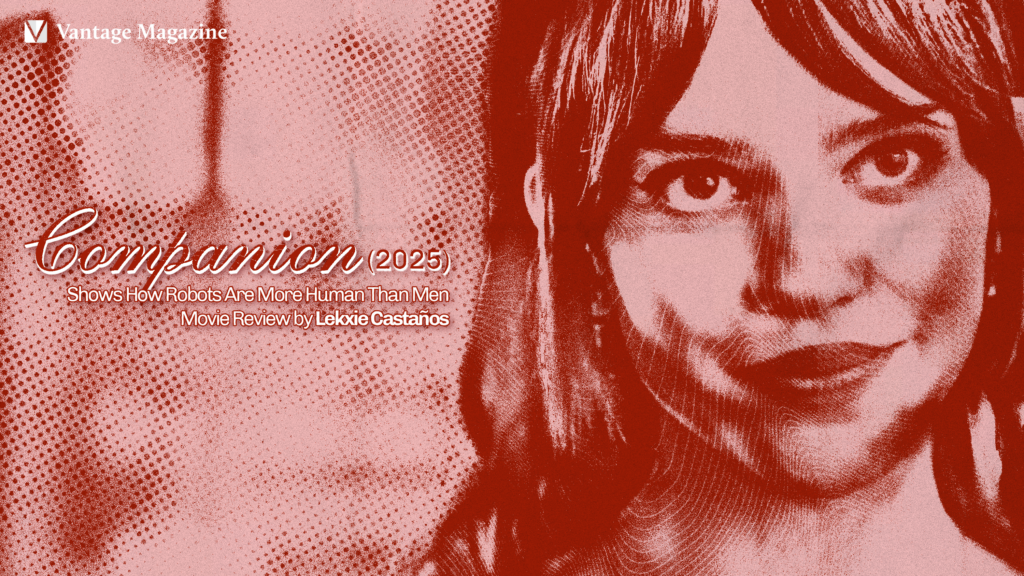After the hype surrounding its teaser release, The Panti Sisters was beset with heavy expectations. The film brings together Paolo Ballesteros with acclaimed Die Beautiful (2017) director Jun Lana once again. Fans of their work, however, will find themselves disappointed by a lackluster attempt at comedic social commentary void 0f nuance or anything new.
The story opens with the flamboyant homecoming of Gabriel (Ballesteros), as he explains his past and introduces the rest of the “Panti Sisters”: Daniel (Martin del Rosario) and Samuel (Christian Bables). For the most part, the plot revolves around the siblings’ comical attempts at a challenge posed by their patriarch, Don Emilio (John Arcilla). The task: Give their dying father a grandchild and each one of them to do so would receive Php 100 million.
A definite high point in the film are the amazing looks for the whole cast, drag included. Beyond aesthetics, the costumes better elevated the characters and highlighted their traits, especially for the three “sisters,” Don Emilio (Arcilla), and his second wife, Vilma (Rosana Roces).
Acting-wise, Arcilla, Ballesteros, and Bables outdid themselves with performances that brought heart-wrenching emotion to the otherwise lighthearted film. Through their delivery, scenes that highlight the struggle of the Lesbian, Gay, Bisexual, Trans, and Queer (LGBTQ+) community were made more poignant.
However, despite its relevance and potential for sharp social commentary, The Panti Sisters still fell short as the plot itself was compromised to fit the generic feel-good-Filipino-comedy mold of witty quips, pop culture references, and a few heartfelt, emotional moments.
Likewise, the script, in trying to be more palatable, only deviated from the conventional laughable and promiscuous portrayal of LGBT+ members towards the latter part of the film. This resulted in a spoon-feeding of the advocacy over encouraging interpretation and critical thinking. Moments that moved towards a more serious resolution were painfully ruined by direct explanations that could have resonated better if left unsaid.
Despite the cast’s stunning wardrobe, notable efforts from its leads, and social relevance, The Panti Sisters read as a little too on-the-nose. While it may elicit some laughs, it fails to send out a new message of representation for the LGBT+ community—especially in a time where pushing for legislation is met with harsh criticism.
Photo sourced from Black Sheep via Cosmopolitan Philippines






